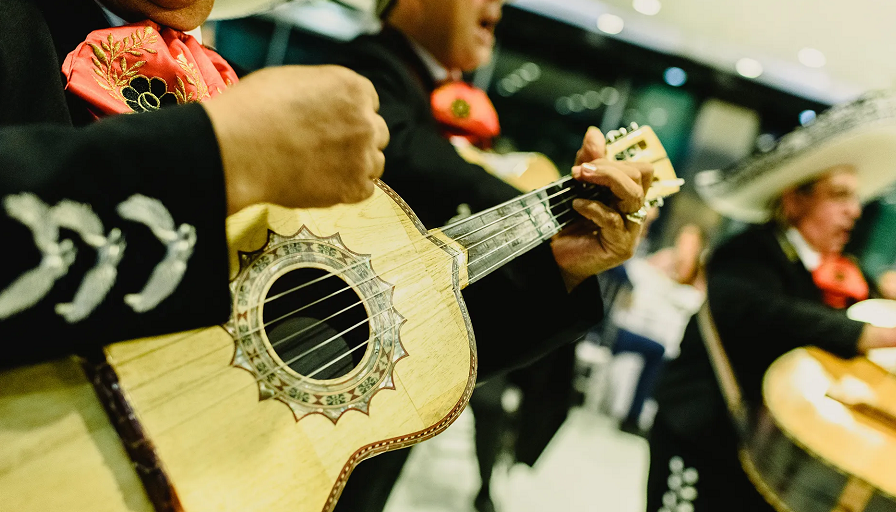
Throughout history, music has served as a powerful bridge between cultures, especially for immigrants who move their lives and families to new lands. This article delves into the enchanting ways music aids in preserving cultural identity among immigrant communities. Here we look at how melodies, rhythms, and lyrics act as vessels for heritage, emotion, and connection across generations. Plus, we will touch on how tracing one’s genealogy can further strengthen ties to our roots and the sounds that define them.
Contents
The Universal Language of Music
Music is often called the universal language, capable of transcending borders and connecting souls. For immigrants, it does much more than entertain; it is a crucial element in maintaining a sense of identity. As people resettle in new countries, they bring with them not just belongings but a rich tapestry of musical traditions that embody their unique cultural legacies.
Melodies from the Homeland
Tunes and songs that originate from the homeland serve as a comforting reminder of where immigrants come from. These melodies carry stories, histories, and linguistics that are central to cultural identity. For instance, Irish immigrants in America have continued to celebrate their heritage through traditional music, which includes lively jigs and soulful ballads. In similar fashion, Latin American immigrants share the vibrant rhythms of salsa, cumbia, and tango, each beat a heartbeat of their origins.
Lyrics as Language Keepers
Lyrics play an equally important role in preserving language, helping succeeding generations establish a connection with their ancestral tongues. This linguistic aspect is especially vital for immigrant families whose children grow up speaking the language native to their new country. Singing songs in their family’s original language offers a natural and joyful way to practice vocabulary and pronunciation. It is not uncommon for a song to be the first phrase someone learns in their mother tongue.
Cultural Storytelling Through Song
Songs do more than convey sounds; they tell stories. Through song, cultural narratives and historical events are memorably passed down from one generation to the next, ensuring important stories are never forgotten. In many cultures, folk songs are a way of storytelling, capturing tales of love, heartbreak, courage, and history.
Passing Down Traditions
Traditional songs are often imbued with lessons and morals specific to the culture from which they originate. They serve both as entertainment and as educational tools, offering insights into the values and ethics of a community. These traditions persisted in immigrant societies, helping preserve their original norms and customs even as they adapt to new surroundings. For example, the storytelling through Aboriginal music in Australia among immigrant communities continues, perpetuating ancient wisdom in modern settings.
Diverse Music Clubs and Communities
Many immigrant communities have formed music groups and clubs, where individuals come together to express their shared heritage. These gatherings are vital in strengthening community ties and providing a space where culture can flourish. Within these clubs, members make connections through song that transcend daily life challenges, promoting unity and cultural pride.
The Impact of Genealogy on Music and Identity
Understanding where we come from is central to embracing who we are. Genealogy has gained popularity as people seek to uncover their roots. When combined with music, this genealogical exploration becomes even richer. Delving into family histories can reveal why certain musical traditions are meaningful to a family or community.
Tracing Ancestral Sounds
Tracing one’s genealogy often unveils the musical styles that have influenced a family’s history. By understanding the cultural background, individuals can deepen their appreciation for the rhythms and sounds that resonate with them. It’s common for people to feel drawn to the music of their ancestry without even realizing its significance. Genealogy can thus explain these emotional connections, spotlighting why particular songs or genres hold personal significance.
Inheriting Musical Legacies
By exploring genealogy, people might also discover musical talents and traditions passed down through generations. For instance, an individual may find ancestors who were musicians or composers, gaining insight into their own musical abilities. This discovery often enhances the value of the music they were already passionate about, enriching their understanding of personal and familial identity.
Music as a Bridge to the Future
As immigrants contribute their musical styles to the mosaic of global sounds, they not only preserve their identity but also enrich their new homes. This exchange creates new opportunities for cultural fusion, leading to the invention of novel music genres and sounds. Over time, these blended styles can also carve out new identities for future generations.
Fusion and Adaptation
The interaction between different cultures leads to musical fusion, where elements of various traditions come together. This adaptation is evident in genres such as jazz, reggae, and hip-hop, which have emerged from the cross-pollination of diverse musical influences. For immigrants, participating in this creative process allows them to express their individuality while contributing to the broader cultural landscape.
Creating New Traditions
As musical landscapes evolve, immigrants often create new traditions that blend old and new. These new hybrids reflect their lived experiences in a multicultural world, preserving the old while embracing change. Such continuity ensures that immigrant communities remain dynamic, resilient, and forward-looking, with music as a constant companion in their cultural journey.
Altogether, music serves as an enduring pillar for immigrants, helping them navigate the complexities of identity in a changing world. It is through song and rhythm that traditions are held dear, languages remain alive, and stories continue to be told, ensuring that immigrant identities not only survive but thrive across time and space.

